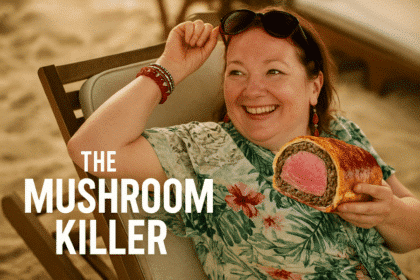News Corp’s sales proposition to marketers and agency partners is simple: ‘if you want to avoid further signal loss and data fragmentation, come to us’. Pippa Leary caught up with B&T to explain more.
There are two challenges that marketers face, but few really understand: the depreciation of third party cookies and how new privacy laws will impact how they engage with consumers across the media ecosystem.
To be fair, it’s an issue most journalists don’t understand, either. But one industry legend who gets it is News Corp’s managing director of client product, Pippa Leary.
She is responsible for making sure that News Corp’s advertising solutions not only meet client expectations, but also deliver the best results at a time when third party cookies and privacy laws cloud the ability of the industry to track how consumers use the world wide web.
Speaking to B&T for News Corp’s annual upfront event D_Coded, Leary was blunt in what concerns marketers when it comes to using data and targeting to advertise.
“It’s been five years of pretty intense signal loss and data fragmentation,” Leary said. “And I think a lot of clients are feeling like they’re not getting the return on ad spend they used to get, especially when it comes to data driven marketing.”
“More and more browsers have been turning third party cookies off and we’re seeing increasing privacy regulations in other markets. We know they are coming here, and so marketers are beginning to want efficiency back.
“It’s been getting harder and harder to target ads towards specific segments online, yet some publishers are still charging the same amount. I wonder if the cost per click has changed to reflect how difficult it is to actually talk to people if you don’t have first party data.
Leary, who has previously held senior roles at Nine and Fairfax Media, prior to when it was acquired by Nine, doesn’t mince her words when describing the state of the digital display advertising market, and specifically how it is traded programmatically and what happens when Google’s Chrome browsers (eventually) turns off cookies.
“The open marketplace is still running on a Wild West sort of principle in which there is not a lot of transparency on the kinds of suppliers that you’re dealing with. In fact marketers are seeing a reduction in efficiency, but nobody’s talking about it because all these middlemen still need to make money out of it.
She added: “What’s going to happen when Chrome finally pulls the plug is that the Emperor’s New Clothes are just going to be stripped off, because that’s the last 50 per cent of the (browser audience in Australia that uses Chrome). It’ll be gone.
“So from a client’s perspective, if you haven’t worked out what your data-driven marketing strategy is after the end of third party cookies, you are in trouble. Because it cannot be the same as it is today. You will not have access to any of that data, you won’t be able to find your audience, you won’t be able to activate the audience, and you certainly won’t be able to measure against something that is going to change indefinitely.”
When asked why it has taken the deprecation of cookies stopwatch for advertisers to take the amount of wastage in digital ad spend in opaque platforms seriously, she said: “Everyone knew about the fraud. Everyone knew about the bot farms. Everyone knows this. And yet, people are still spending on it!.
“We’re really looking forward to it because we see it as the wake up call. And the end of lazy marketing. [Marketers] are going to have to think about their marketing strategies. Cookies were like, the dirty secret no one wanted to talk about for 15 years.”








